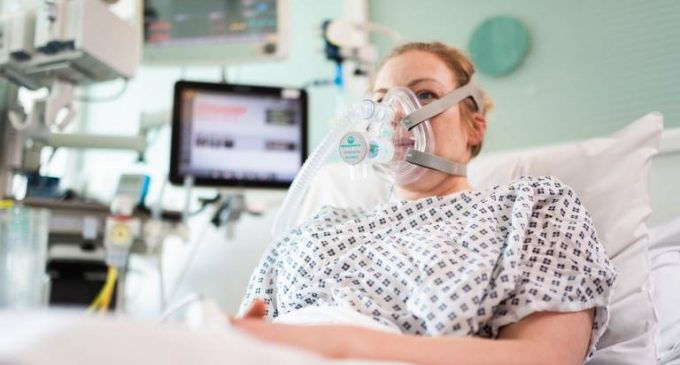UCL, UCLH and Formula One Develop Life-saving Breathing Aids For the NHS

A breathing aid that can help keep Covid-19 patients out of intensive care, adapted by mechanical engineers at UCL (University College London) and clinicians at UCLH (University College London Hospitals) working with Mercedes-AMG High Performance Powertrains (Mercedes-AMG HPP), has been approved for use in the NHS.
The breathing aid, known as Continuous Positive Airway Pressure (CPAP), has been used extensively in hospitals in Italy and China to help Covid-19 patients with serious lung infections to breathe more easily, when oxygen alone is insufficient.
Since Wednesday 18th March, engineers at UCL and HPP and clinicians at UCLH have been working round the clock at UCL’s engineering hub MechSpace to reverse engineer a device that can be produced rapidly by the thousands. This has now been recommended for use by the Medicines and Healthcare products Regulatory Agency (MHRA).
This breathing aid was produced within a rapid time frame – it took fewer than 100 hours from the initial meeting to production of the first device. One hundred devices are to be delivered to UCLH for clinical trials, with rapid roll-out to hospitals around the country ahead of the predicted surge in Covid-19 hospital admissions.
The collaboration, supported by the National Institute for Health Research UCLH Biomedical Research Centre, demonstrates the way that universities, the NHS and industry are coming together to help the national response to the Covid-19 coronavirus outbreak, by providing vital technologies to the NHS which can enable them to care for patients who require respiratory support.
Reports from Italy indicate that approximately 50% of patients given CPAP have avoided the need for invasive mechanical ventilation. However, such devices are in short supply in UK hospitals.
UCLH critical care consultant Professor Mervyn Singer (UCL Medicine) said: “These devices will help to save lives by ensuring that ventilators, a limited resource, are used only for the most severely ill. While they will be tested at UCLH first, we hope they will make a real difference to hospitals across the UK by reducing demand on intensive care staff and beds, as well as helping patients recover without the need for more invasive ventilation.”
Professor Rebecca Shipley, Director of UCL Institute of Healthcare Engineering, said: “At UCL, we have an established ecosystem of partnerships spanning engineers, healthcare and industry ready to be mobilised in times of need. It’s been a privilege to work closely with our clinical colleagues and with doctors leading the Covid-19 response in China and Italy. This close contact has helped us to define the need and respond with technology that we hope will support the NHS in the weeks and months to come.”
Professor Tim Baker (UCL Mechanical Engineering) said: “Given the urgent need, we are thankful that we were able to reduce a process that could take years down to a matter of days. From being given the brief, we worked all hours of the day, disassembling and analysing an off-patent device. Using computer simulations, we improved the device further to create a state-of-the-art version suited to mass production.
“We were privileged to be able to call on the capability of Formula One – a collaboration made possible by the close links between UCL Mechanical Engineering and HPP.”
Andy Obeid, Chief Executive of Oxford Optronix, a small business that will manufacture the oxygen monitors for the CPAP devices, said: “By working flat out and mobilising the support of every individual in my company as well as other small companies across the UK, we have accomplished something in five days that would normally take two years. I am delighted we have been able to design, develop, test and manufacture a bedside monitor that will continuously measure the concentration of oxygen being delivered to the patient and is ready for clinical trials.”
CPAP machines are routinely used by the NHS to support patients in hospital or at home with breathing difficulties. They work by pushing an air-oxygen mix into the mouth and nose at a continuous rate, keeping airways open and increasing the amount of oxygen entering the lungs. Invasive ventilators deliver breaths directly into the lungs, but require heavy sedation and connection to a tube placed into the patient’s trachea (windpipe).


























